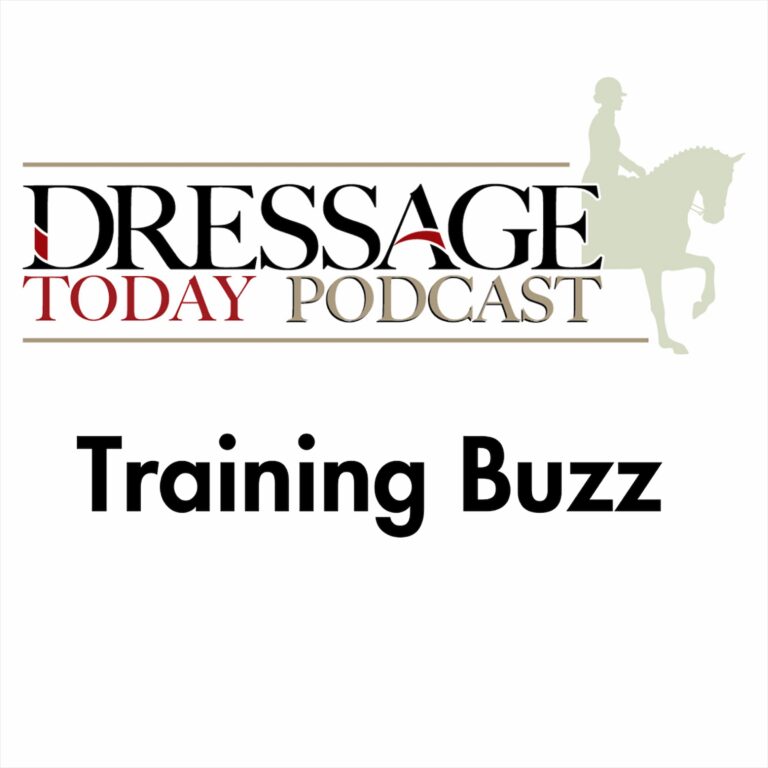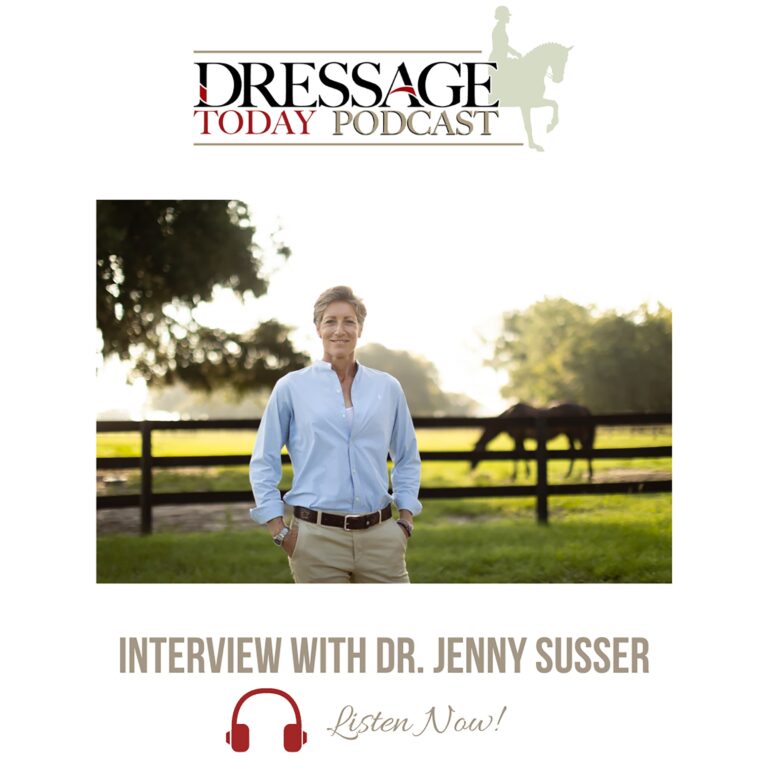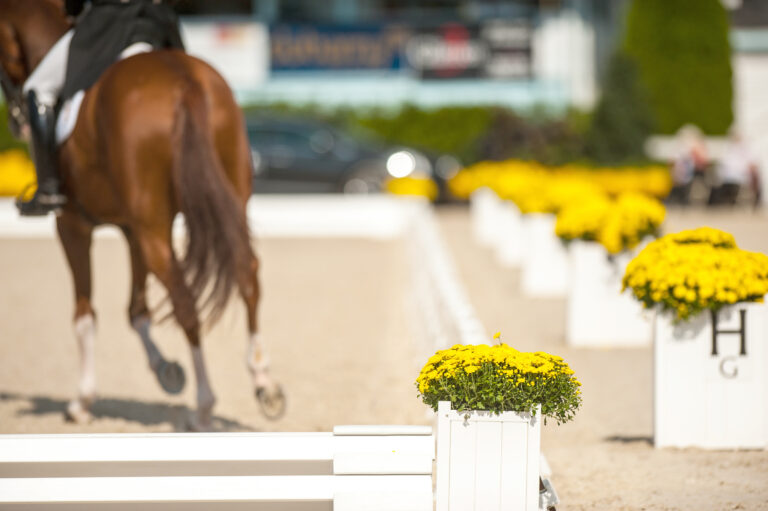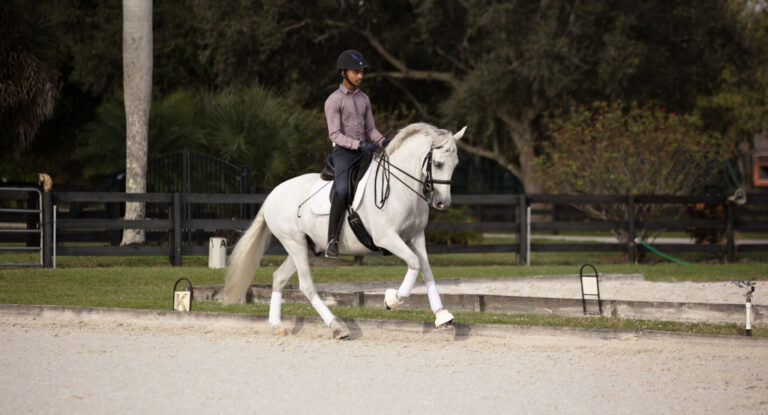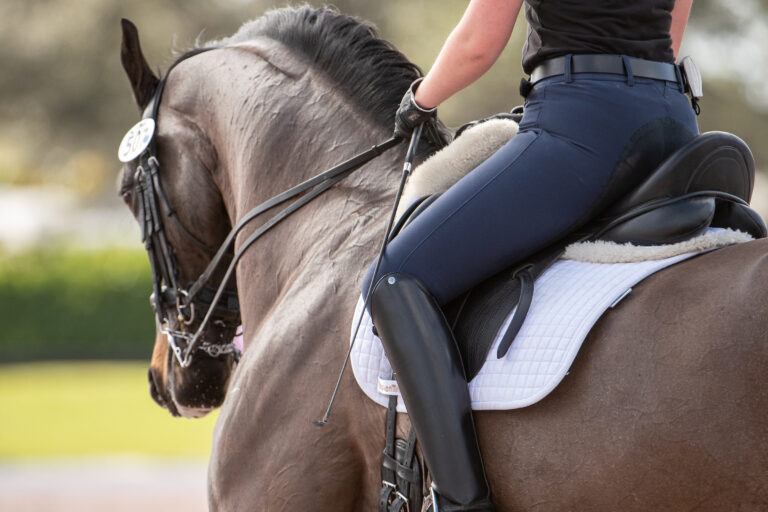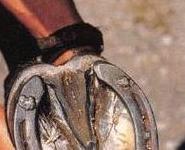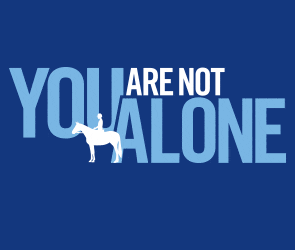Q: I ride at my best when I am by myself. I get nervous when I see other people standing at the side of the ring watching. I am afraid they are judging me. How can I help myself perform even when there is an audience? —Name withheld by request
A: This is a great question. You are not alone. We all worry about what others think of us, in some way or another. Have you ever stopped to wonder why this is?
Human beings are born to judge. It is a survival instinct. Being able to evaluate situations (and people) that are unfamiliar creates a better opportunity for survival. It all starts in a small part of the brain called the amygdala, which focuses on keeping us alive. When you can distinguish friends from rivals, you have a better chance at surviving. That being said, very few of us in the dressage world are struggling to just stay alive, so why do we continue to operate this way?
We are wired for this kind of judgment response and without intervention it becomes the norm or a habitual way of thinking. Think about your horse for a moment: He can sleep on a black stall mat every night for years—but put it outside in a field and ask him to walk over it, and he will think it is going to eat him. Horses have an amygdala, too, and, like humans, it is also wired to identify differences and change because horses are definitely still programmed for survival.
Let’s keep going with this black stall mat scenario: Your horse continues to snort and spook, and you just shake your head because his reaction doesn’t make sense to you. The reason for this is that you have a part of your brain called the neocortex (or frontal lobe) and horses (and other animals) lack this evolutionary wonder. This part of the human brain allows us to have abstract thoughts, to have an imagination, and, most importantly, to override our natural knee-jerk reactions triggered by the lower parts of the brain like the amygdala. So now what do you do with this anatomy lesson? Research shows that reactionary bias (the hard-wired stuff) is also subject to experiences and learning influences. Which means some of your behavior was learned. Although you can’t shut off these survival instincts completely, research also shows that with some mental effort, you can choose to override them.
Now, I understand your specific question is more concerned with other people’s thoughts about you. However, I hate to be the bearer of bad news, but part of your fear of what others are thinking about you is actually because of how you are judging others—whether you know it or not.
To address this, you can do a couple of things. First, make yourself aware of how frequently you judge others. This sucks, frankly, because it is uncomfortable to notice our flaws. Secondly, choose to override the habitual negative commentary your brain has gotten so accustomed to over the years. How? Pause and look deeper at things. Ask questions instead of making statements, seek perspective and be a little more generous with others. It sounds “soft” I know, but really, there is no other way.
Dressage is a challenging sport and what you see from the ground is not always what the person in the saddle feels. We naturally put others down in an effort to make ourselves feel better. (Thanks, amygdala. And by the way, that strategy doesn’t work anyway.) Luckily, the neocortex can help us think our way to feeling better. When you open up your thoughts, it allows your brain to do something else it is wired for: seek connection. And if you think about it, being connected with others feels so much better than judging them, because your brain releases healthier hormones. Let’s make a bet: You work to open up your thoughts and notice when you are judging others. Once you recognize your own behavior, I bet you will feel less worried about others. Then you will be better able to focus on your riding. Our neocortex has us convinced that we are so evolved—but really we are still creatures of habit for survival. Flex that part of your brain and as it becomes stronger, you will too.
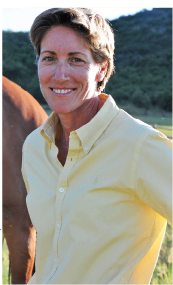
Jenny Susser has a doctoral degree and is licensed in clinical health psychology, specializing in sport psychology. A four-year all-American swimmer at UCLA, she swam on two national teams and at the 1988 Olympic Trials. She has worked with athletes of all sports and ages—collegiate, professional, international and amateur. She was the sport psychologist for the 2010 WEG South African Para-Dressage Team and the 2012 U.S. Olympic Dressage Team. Dr. Jenny is also a performance coach with Human Performance.


